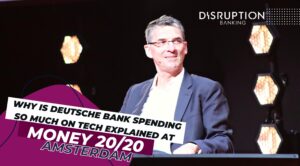When it comes to green fintech, Switzerland is on a roll. The Alpine country is stepping up its support for the fashionable holy union of fintech and sustainable investing, with its Federal Council having launched a Green Fintech Network to ‘identify areas in which the conditions for green fintech could be improved’.
State secretary for international finance Daniela Stoffel launched the network – which has fintech and venture capital firms, as well as consultancies, law firms and universities – as members.
The aim is to publish an action plan in the spring.
SIF just launched the Green Fintech Network to establish a mode of close cooperation between key experts of the green fintech ecosystem and SIF. https://t.co/IDUnIw4Mbs #greenfintech #sustainablefinance #innovation #sustainabledevelopment @efd_dff #sif_sfi pic.twitter.com/i6iDSSmIxI
— SIF_SFI (@sif_sfi) November 5, 2020
This state-backed activity follows the Federal Council’s adoption of a report and guidelines on sustainability in the financial sector last June, with the broader ambition of making Switzerland a ‘leading location for sustainable financial services’.
Switzerland’s big banks are on the case: Ralph Hamers, recently installed as chief executive of UBS, last month picked out green fintech as a top trend for 2021; while the private- and public-sector have teamed up to launch information portal finance.swiss to promote the country’s financial sector internationally.
The Swiss federal government and key players from the financial sector stand united for a strong 🇨🇭 financial center.
— finance.swiss (@finance_swiss) December 7, 2020
We proudly present @SwissBankingSBA, @AM_Switzerland, @sixgroup @Zurich and @SwissRe who launched this project together with @efd_dff and @eda_dfae. pic.twitter.com/pUzj9KLNt9
With such fair winds in their sails, the British embassies in Switzerland and neighbouring Austria are hosting a (virtual) UK Fintech Mission on 28 January – with fintech’s role in unlocking green finance on the agenda for a panel discussion.
Among the fintechs participating will be Plenitude, a start-up providing white-label ESG (environmental, social and governance) robo-advice solutions for financial institutions that want to target individuals concerned about climate change and who want to align their investments with their values. The company was the only robo-adviser in the UK Financial Conduct Authority’s first ‘Green Fintech Challenge’ in 2019 and, last August, joined a six-month programme being run by the F10 accelerator in Zurich.
Geilan Malet-Bates, one of Plenitude’s founders, is passionate about green fintech’s potential. To illustrate, she points to research by Nordic bank Nordea that said that moving your pension savings to sustainable funds can be a whopping 27 times more impactful than other ways of reducing your carbon footprint.
“One of the powers of technology is scalability – making green finance more accessible to the masses,” Malet-Bates, who is ex-Morgan Stanley, tells #DisruptionBanking. “Another is the aggregation, analysis and application of qualitative (including otherwise unstructured) data, which allows a better assessment of both opportunities and risks, therefore contributing to better investment decisions and the more effective allocation of funds to the global infrastructures that really need them.”
Katherine Foster, a former innovation lead for Switzerland at the European public-private organisation Climate-KIC, will be a panellist at the 28 January event.
Speaking to #DisruptionBanking by video-call from Washington DC, Foster – who was the Green Digital Finance Alliance (GDFA)’s sherpa to the UN Secretary General’s Task Force on Digital Financing of the Sustainable Development Goals (SDGs) and is now a lead consultant on the UN Dialogue focusing on the SDG impacts of ‘BigFintechs’ (as extension of the UN Task Force) points out that “many of these BigFintechs are emerging from outside the financial sector [and] having a massive impact both positive and negative.”
She believes that a “more integrative approach” to innovation, going beyond a definition of fintech as emerging solely from the financial sector, is needed to scale impact. “This includes emerging tech for SDGs where Swiss innovators are showing great leadership,” she says.
“One of the biggest findings from my GDFA work is that there is a need to merge the separate tracks of fintech, green finance and emerging tech for SDGs and climate,” she says. “The technical capacity exists to vastly scale innovation for green finance such as in digital green bonds but this requires collaboration and systems integration.”
Her current organisation, Open Earth Foundation CA, is, she says, “very near” to piloting an end-to-end digital green bond across the entire operational chain (structuring, issuance, distribution, payment and settlement, management of proceeds, as well as automated evaluation and reporting).
Technical progress is obviously pivotal for green fintechs, but regulatory developments help set the mood music. Although Switzerland sits outside the 27-member European Union (EU), EU policymaking is influential (as will remain the case in the UK, despite Brexit). Examples include the EU’s digital finance package presented in September; the new sustainable finance disclosure regulation (SFDR), which will apply from March; the EU green bond standard; and ongoing development of the EU’s taxonomy for sustainable activities.
The European Commission’s sustainable finance unit head enjoyed a busy Christmas break:
Many thanks to all 4️⃣6️⃣5️⃣9️⃣1️⃣ respondents to the @EU_Commission’s public consultation on the #EUTaxonomy criteria for climate change mitigation and adaptation. The reading list for this🎄seems to be pretty much fixed! 😅 https://t.co/utuYQQK2KE
— Martin Spolc (@MartinSpolc) December 20, 2020
Green fintechs may have been licking their lips at the possibilities. “It’s a golden opportunity for fintech to help industry collect and organise the huge amounts of data needed to report against the EU taxonomy and new SFDR,” Charlene Cranny, who works for both the pan-European sustainable investment association Eurosif and the UK Sustainable Investment & Finance Association (UKSIF), tells #DisruptionBanking. “New tech that can simultaneously streamline company reporting and help increase disclosure will likely be very profitable.”
The green fintech market is diverse, with market segments developing in different ways. “While green finance is moving from niche to normal in the institutional space there remains the challenge to make it available to, and normalise it across, the retail market – reaching mainstream consumers and savers,” points out Cranny. She cites Bristol-based Tumelo, whose software enables investors to vote on ESG issues they care about, and London-based Clim8 Invest, which has developed an app to enable people to make sustainable investments, as exemplifying different types of green fintech solutions.
In Switzerland, the State Secretariat for International Finance (SIF) has published the results of a survey on the opportunities and obstacles facing green fintechs. Barriers identified in a 16-page report include the relatively limited size of the domestic market; and higher development costs compared to other fintechs, reducing access to growth capital because of the typically longer time taken to become profitable.
Looking ahead, Plenitude’s key dates for the year – globally, internationally and more locally, and spanning regulation and business development – are likely to be typical of those in the increasingly populated green fintech field.
Delighted to be selected as one of the #FinTech firms touring Switzerland and Austria on the UK FinTech Mission 2021 with the @tradegovuk https://t.co/WFoVpnQhfH
— Plenitude.io (@Plenitude_io) December 17, 2020
“COP 26 [in Glasgow in November] is the main event for the sustainable investing sphere this year, as well as [the EU] SFDR in the spring,” says Malet-Bates. “For Plenitude it’s the 28 January [virtual] trip to Switzerland and Austria, the rest of our time at the F10, and our continuing expansion thereafter. We are also working on an exciting project (not yet made public), so watch this space.”
When the green shoots of economic recovery emerge post-coronavirus, momentum will continue to build for green fintech – in the shadows of the Alps and beyond.
#Switzerland #fintech #greenfintech #sustainabledevelopment #ESG #sustainableinvesting #Plenitude #COP26 #SDGs #Eurosif #UKSIF #EUTaxonomy #Austria #Tumelo #Clim8Invest #F10 #Nordea #UBS
Author: Ian Hall
The UK Fintech Mission to Switzerland and Austria which will take place digitally on 28 January. The event offers decision-makers from Swiss and Austrian financial institutions an opportunity to meet more than 35 UK fintech companies and to listen to key opinion leaders. Check out the website for more information and instructions on how to apply to register.
















One Response